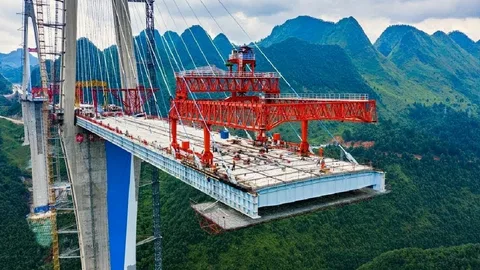
The HVAC industry, comprising Heating, Ventilation, and Air Conditioning businesses, is an ever-evolving sector, providing essential climate control solutions to both residential and commercial properties. As global demands for energy-efficient and sustainable climate control solutions rise, the HVAC industry has witnessed significant growth and innovation. Given the industry’s complexities and the specific knowledge required to run such enterprises, when the time comes to sell an HVAC business, the approach must be meticulous, informed, and strategic.
This article explores the instrumental role of business brokers in selling HVAC companies. The primary purpose of this piece is to illustrate the importance of engaging expert assistance when selling in this specialized market. We will discuss the benefits of utilizing brokers, the process of selling with their help, and tips on choosing the right one for your business sale journey.
What is a Business Broker?
A business broker is akin to a real estate agent for companies, serving as an intermediary between business sellers and prospective buyers. The primary role of a broker encompasses evaluating the value of the business, preparing it for sale, marketing it to potential buyers, and guiding both parties through the negotiation and transaction process. While general business brokers can handle the sale of various enterprises, an HVAC broker specialized in HVAC transactions possess nuanced knowledge of the industry’s intricacies. This expertise allows these brokers to offer tailored advice, access a broader network of industry-specific buyers, and often results in smoother, more profitable sales for HVAC business owners.
Advantages of Hiring Business Brokers for HVAC Sales
Expertise in the Industry
Business brokers specialized in HVAC transactions bring a deep understanding of the sector’s operations, financial landscapes, and market dynamics. This knowledge ensures sellers get the best advice tailored to the unique attributes of HVAC businesses.
Valuation Expertise
Brokers use industry-specific metrics and comparative analyses, ensuring the HVAC business is priced competitively and fairly, maximizing returns for the seller.
Confidentiality
Brokers implement safeguards and protocols to ensure that proprietary information, financial details, and other confidential data remain shielded from unnecessary exposure.
Marketing and Network
Having the right buyer is half the battle. Business brokers tap into an extensive network of potential buyers and use specialized marketing tools designed for the HVAC industry, increasing the chances of finding the right fit quickly.
Negotiation Skills
The art of negotiation is central to maximizing a sale’s value. Brokers act as mediators, leveraging their skills to ensure terms are favorable and equitable for both parties involved.
Time-saving
Selling a business can be time-consuming. By handling all aspects of the sale process, brokers free up HVAC business owners, allowing them to continue focusing on their daily operations without distractions.
The Process of Selling an HVAC Company through a Business Broker
Initial Consultation
The journey starts with a comprehensive discussion where the broker grasps the nuances of the HVAC business, analyzing its assets, liabilities, and discerning its potential for growth. This foundational step ensures that the broker is well-prepared to represent the company to potential buyers.
Market Analysis
Here, the broker assesses the current landscape of the HVAC industry. They evaluate demand, identify potential competitors on sale, and pinpoint where the business stands in the market, ensuring they strategize the sale process informed by the prevailing conditions.
Business Valuation
Business valuation involves a thorough analysis of the company’s financial statements, assets, client contracts, and industry trends. By assessing these elements, the broker determines an optimal and justifiable selling price.
Listing and Marketing
With a clear understanding of the business’s worth, the broker then actively markets it. This involves creating compelling listings and leveraging various promotional channels to ensure maximum visibility and engagement from potential buyers.
Screening Potential Buyers
Not all interested parties are genuine or qualified. Brokers use their expertise to vet prospects, ensuring that only serious and financially capable buyers get through. This minimizes wasted time and protects the business’s sensitive information.
Negotiations
Once a potential buyer shows genuine interest, the broker steps in as a mediator. Their role is to facilitate discussions, iron out differences, and ensure that both the seller and buyer reach agreeable terms.
Closing the Sale
Finalizing the transaction isn’t just about shaking hands. The broker oversees the legal and financial intricacies involved in sealing the deal, ensuring a smooth transition and safeguarding both parties’ interests.
Key Considerations When Choosing a Business Broker for HVAC Sales
Experience
Potential sellers should seek brokers with proven experience in executing HVAC business sales, as this indicates their familiarity with the industry’s nuances and challenges.
Testimonials and References
Feedback from past clients can provide invaluable insights. By examining testimonials and asking for references, sellers can gauge the broker’s reliability, professionalism, and success rate.
Fees
The financial aspect of hiring a broker cannot be overlooked. It’s essential for sellers to clearly understand the broker’s fee structure, including any upfront costs and success-based fees, ensuring there are no unpleasant surprises down the road.
Marketing Approach
The strategy a broker employs to promote the HVAC business plays a significant role in attracting potential buyers. Sellers should inquire about the broker’s marketing plan, the channels they utilize, and how they intend to differentiate the business in the market.
Network
A broker’s connections can significantly expedite the selling process. The broader and more relevant their network in the HVAC sector, the higher the likelihood of connecting with serious buyers and completing a successful sale.
Leveraging the expertise of a specialized business broker can be the difference between a smooth, profitable transaction and a challenging, protracted ordeal when selling an HVAC business. These professionals not only bring industry-specific knowledge and networks but also guide sellers through each step, ensuring optimal outcomes. For HVAC business owners considering a sale, partnering with a skilled broker is a strategic move towards a successful transition.






